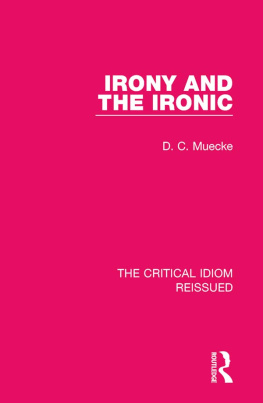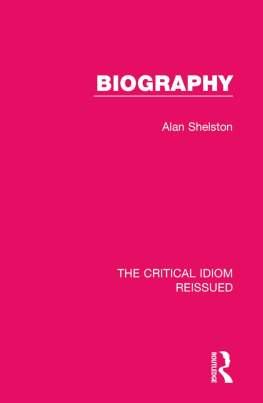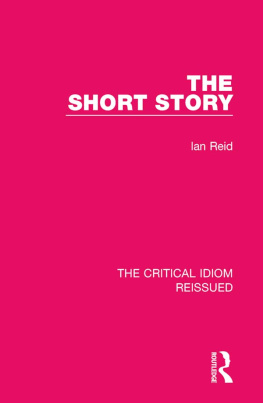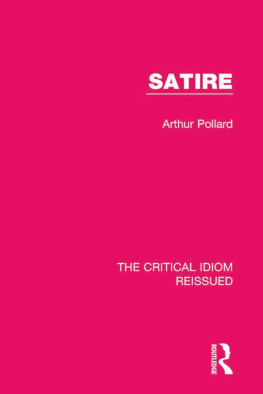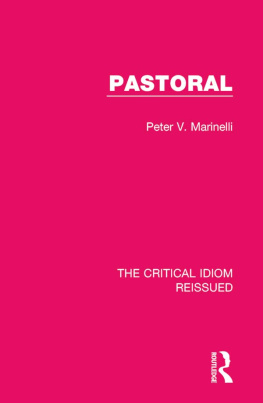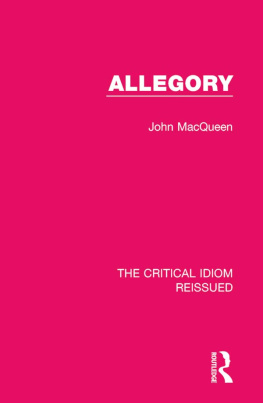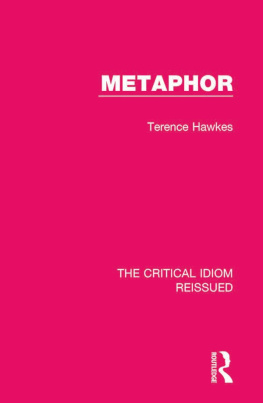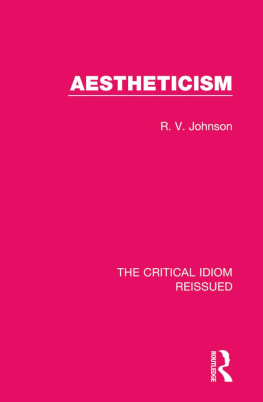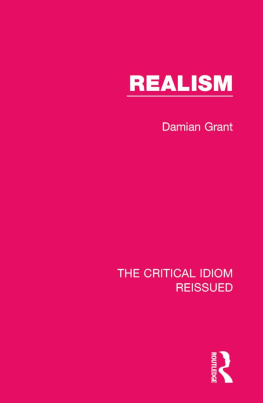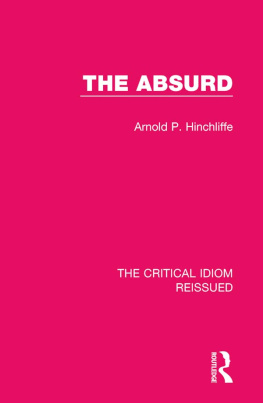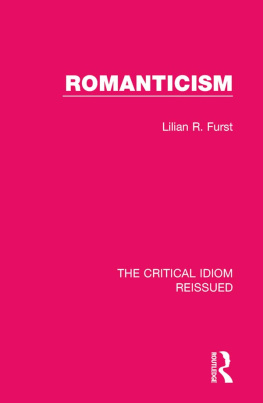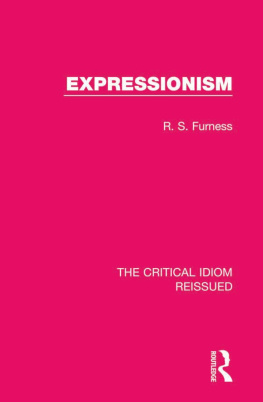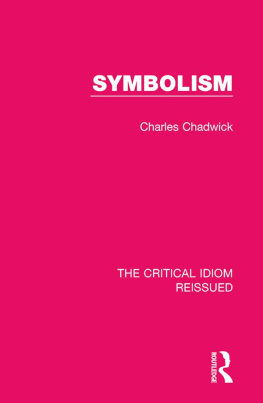Table of Contents
Guide
Print Page Numbers
THE CRITICAL IDIOM REISSUED
Volume 12
IRONY AND THE IRONIC
IRONY AND THE IRONIC
D. C. MUECKE
First published in 1970 by Methuen & Co Ltd
Second Edition 1982
This edition first published in 2018
by Routledge
2 Park Square, Milton Park, Abingdon, Oxon OX14 4RN
and by Routledge
711 Third Avenue, New York, NY 10017
Routledge is an imprint of the Taylor & Francis Group, an informa business
1970 and 1982 D. C. Muecke
All rights reserved. No part of this book may be reprinted or reproduced or utilised in any form or by any electronic, mechanical, or other means, now known or hereafter invented, including photocopying and recording, or in any information storage or retrieval system, without permission in writing from the publishers.
Trademark notice: Product or corporate names may be trademarks or registered trademarks, and are used only for identification and explanation without intent to infringe.
British Library Cataloguing in Publication Data
A catalogue record for this book is available from the British Library
ISBN: 978-1-138-21971-7 (Set)
ISBN: 978-1-315-26975-7 (Set) (ebk)
ISBN: 978-1-138-22963-1 (Volume 12) (hbk)
ISBN: 978-1-315-38834-2 (Volume 12) (ebk)
Publishers Note
The publisher has gone to great lengths to ensure the quality of this reprint but points out that some imperfections in the original copies may be apparent.
Disclaimer
The publisher has made every effort to trace copyright holders and would welcome correspondence from those they have been unable to trace.
Irony and the Ironic
D. C. Muecke
First published in 1970
by Methuen & Co. Ltd
11 New Fetter Lane, London EC4P 4EE
Published in the USA by
Methuen & Co.
in association with Methuen, Inc.
733 Third Avenue, New York, NY 10017
Second edition 1982
1970 and 1982 D. C. Muecke
All rights reserved. No part of this book may be reprinted or reproduced or utilized in any form or by any electronic, mechanical or other means, now known or hereafter invented, including photocopying and recording, or in any information storage or retrieval system, without permission in writing from the publishers.
British Library Cataloguing in Publication Data
Muecke, D. C.
Irony and the ironic.(The Critical idiom; 13)
1. Irony in literature
I. Title II. Series
ISBN 0 416 32940 3
ISBN 0 416 32860 1 (Pbk)
Library of Congress Cataloging in Publication Data
Muecke, D. C. (Douglas Colin)
Irony and the ironic.
(The Critical idiom; 13)
Second ed. of: Irony. 1970.
Bibliography: p.
Includes index.
1. Irony. 2. Irony in literature.
I. Title. II. Series.
BH301.17M8 1982 809.91 8122294
ISBN 0 416 32940 3 AACR2
ISBN 0 416 32860 1 (Pbk)
Contents
To
Barbara Wall
fellow student
The change of title is designed solely to mark the fact that, with the exceptions of the section entitled Early concepts of irony and a few paragraphs here and there, the present work constitutes less a revision of my earlier work in this series than a complete rewriting.
D. C. M.
The author would like to thank Professor Leslie Bodi of Monash University for what has been more than twenty years of friendly and helpful ironological consociation.
The author and publishers would like to thank the following for permission to reproduce copyright material:
Martin Esslin and Encounter for The Solution (Bertolt Brecht, trans. Martin Esslin, June 1959).
When all else fails, read the directions. These words, printed on a can of paint, show that irony plays a part in everyday living, a relatively small part, perhaps, though many other instances could be cited. Such folk irony generally offers no great challenge; something more sly or covert like The directions may be ignored might only have proved puzzling, though the message is much the same. In this work, more attention will be paid to irony in literature than to the simpler ironies practised or observed in life at large. Not that a sociological approach to irony need be uninteresting: one would like to know what parts both Verbal Irony and the shared recognition of ironical situations and happenings play in the daily life of different social groupings, and whether people are more likely or less likely to be ironical, more alert or less alert to irony, according to social class and status, degree of urbanization, strength of religious or political convictions, occupation, sex, education, IQ rating or personality type. The hero of Svevos Confessions of Zeno remarks that Accountants are by nature a race of animals much inclined to irony. Since, however, Svevo, not to mention his hero, had had a career in commerce, the statement if true may be ironical but if ironical may be true.
I had long been hearing, in the English colony at Tokyo, that no Japanese can understand irony (whereas the Chinese, of course, use it all the time). So William Empson, who taught in both Japanese and Chinese universities in the 1930s (New York Review of Books, 12 June 1975, p. 37). On the other hand, a desultory reading in anthologies of Chinese and Japanese classics (admittedly in English translations) might easily give a contrary impression: that the Chinese are straightforward and practical with a robust sense of humour, that the Japanese are involuted, introspective and sophisticated. The way in which the

